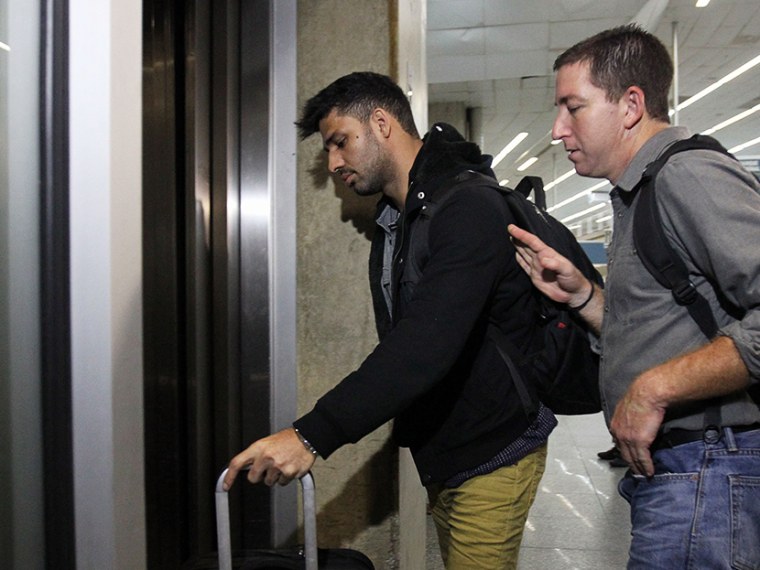Is a terrorist a person who murders civilians, or attempts to, or wants to?
In the United Kingdom, a law from the year 2000 defines terrorist as a person involved “in the commission, preparation or instigation of acts of terrorism.” If authorities suspect someone fits that definition, the law grants them special terror powers to suspend the person’s rights and detain them to determine if the person is a terrorist.
On Sunday, U.K. authorities invoked that power for a shocking detention. They held David Miranda, a Brazilian national and partner of The Guardian’s Glenn Greenwald, without rights or contact with outsiders for nine hours.
The U.K. does not accuse Miranda of being a terrorist. They knew who he was. And they haven’t offered any information to prove that it took them nine hours to figure out he wasn’t a terrorist. Instead, it looks like the U.K. exploited a special power for fighting terrorism in order to harass the partner of a journalist who has been reporting on government surveillance.
In response, the very British politicians who wrote the Terrorism Act are decrying the operation as an abuse of a security power to intimidate the press.
Miranda’s lawyers went to court asking for a declaration that the detention illegal and for the return of property seized by authorities. The incident is causing international outrage because abusing security powers to harass the press is a hallmark of authoritarian dictatorships -- not open democracies.
And yet here in the U.S., some prominent voices are actually defending the U.K.’s action. First, critics say that because Miranda is not a professional reporter, he shouldn’t have been carrying any materials for The Guardian. Second, there’s the aggressive allegation that because classified material might be on his computer, Miranda is basically a drug mule. New Yorker legal affairs expert Jeffrey Toobin said, "I don’t want to be unkind, but he was a mule. He was given something, he didn't know what it was, from one person to pass to another at the other end of an airport. Our prisons are full of drug mules."
Let’s stop right there.
Holding classified information for a reporter is not the same as swallowing a bag of heroin for a drug dealer. Not only is that common sense – it’s the law. If simply possessing classified information were a crime, I’d be speaking to you from a room full of criminals. In our newsroom, reporters and staff possess classified information and unauthorized government disclosures and materials. Very few significant news stories are based on press releases alone. If you report on the government, sometimes you report on what it’s not telling the public. And as for Miranda’s professional status – it’s totally beside the point! The police were acting on a specific authority for detaining suspected terrorists. From the information provided, it’s clear they abused that power.
So it doesn't matter what Miranda does for a living – he has a right to due process and a right to counsel and a right not to be harassed by government officials who don’t like the way his husband writes about them.
By compromising those rights in a fake terrorism investigation, the U.K. actually compromised public safety twice. First by undermining individual liberty, and then by undermining the public trust that is essential for tough policing. This from the nation that gave us Magna Carta. Let's make sure we don't follow their lead on this one.
